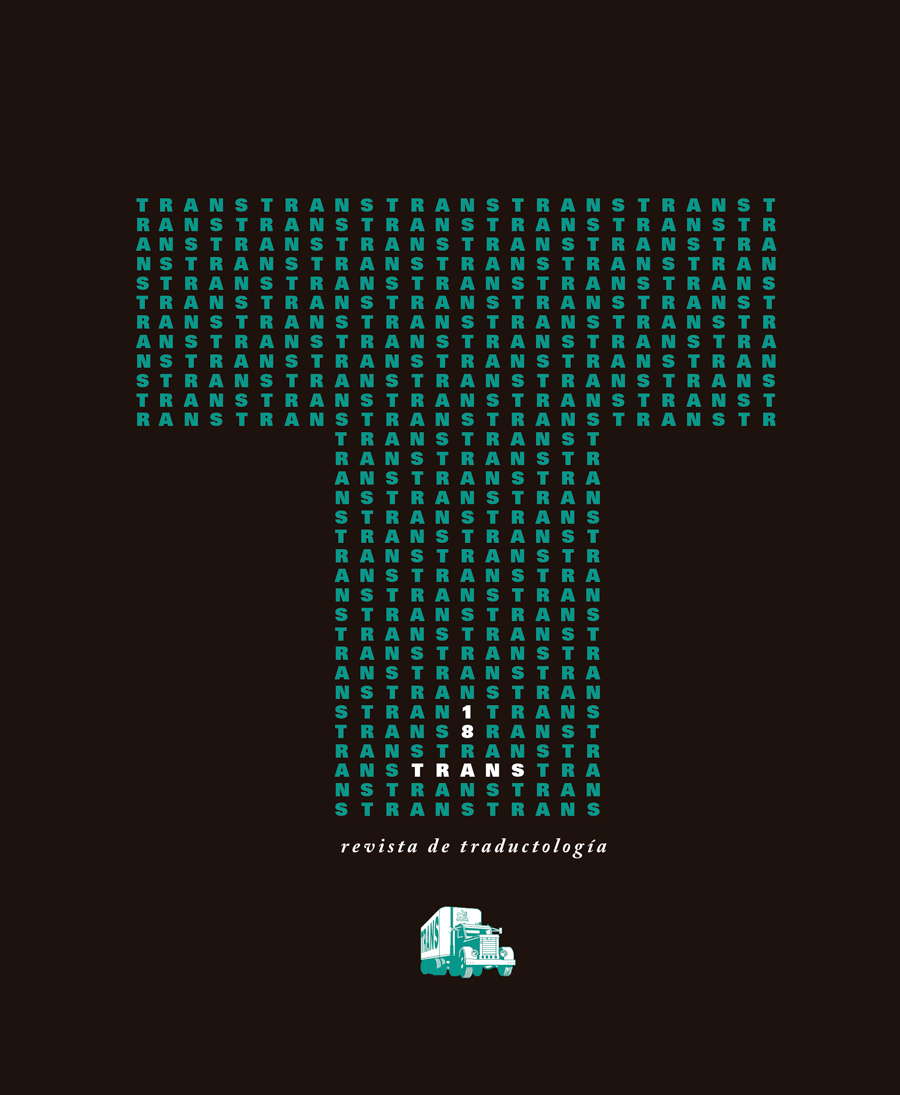Rolf in Slovene Woods. The Classic Work of the Scout and Woodcraft Movements in a Pre-Socialist and Socialist Translation
DOI:
https://doi.org/10.24310/TRANS.2014.v0i18.3245Keywords:
self-censorship in children’s literature in socialist states, scouts, E. T. Seton, Marxist ideologyAbstract
The article investigates the mechanisms of self-censorship at work in translations of children’s literature in a Socialist state: the Socialist Republic of Slovenia that used to be a constituent part of the Socialist Federal Republic of Yugoslavia. The survey of the historical period shows that the Communist-led regime in the first decade after the Second World War systematically focussed on ideological (re)education of children, in particular it attempted to eradicate the influence of Christian religion. This ideological struggle is often clearly visible in retranslations of children’s literature that were created in this period. In this article the translational expression of the Socialist ideological imperative is then analysed by comparing two Slovene translations of the work for juvenile audience Rolf in the Woods by the founder of the Boy Scouts of America, Ernest Thompson Seton: the first translation was created before WWII, the second soon after it.Downloads
Metrics
Publication Facts
Reviewer profiles N/A
Author statements
Indexed in
-
—
- Academic society
- N/A
- Publisher
- Universidad de Málaga
Downloads
Published
How to Cite
Issue
Section
License
All contents published in TRANS. Revista de Traductología are protected under the Creative Commons Attribution-NonCommercial-ShareAlike 4.0 International (CC BY-NC-SA 4.0) license. All about this license is available in the following link: <http://creativecommons.org/licenses/by-nc-sa/4.0>
Users can copy, use, redistribute, share and exhibit publicly as long as:
- The original source and authorship of the material are cited (Journal, Publisher and URL of the work).
- It is not used for comercial purposes.
- The existence of the license and its especifications are mentioned.
- ShareAlike — If you remix, transform, or build upon the material, you must distribute your contributions under the same license as the original.
There are two sets of authors’ rights: moral and property rights. Moral rights are perpetual prerogatives, unrenounceable, not-transferable, unalienable, imprescriptible and inembargable. According to authors’ rights legislation, TRANS. Revista de Traductología recognizes and respects authors moral rights, as well as the ownership of property rights, which will be transferred to University of Malaga in open access.
The property rights are referred to the benefits that are gained by the use or the dissemination of works. TRANS. Revista de Traductología is published in an open access form and it is exclusively licenced by any means for doing or authorising distribution, dissemination, reproduction, , adaptation, translation or arrangement of works.
Authors are responsable for obtaining the necessary permission to use copyrighted images.













21.png)
